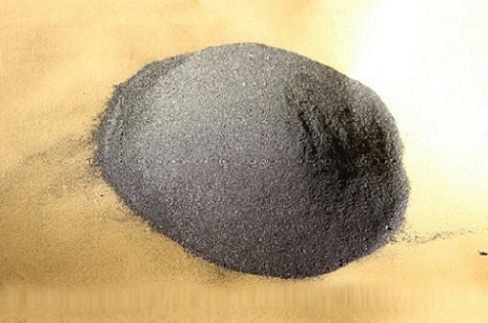Natural Graphite, as its name implies, is naturally formed by natural graphite, which is generally found in graphite schist, graphite-gneiss, graphite-bearing schist and metamorphic shale.
Features
The chemical composition of graphite is carbon (C). Naturally produced graphite is rarely pure and often contains impurities, including SiO2, Al2O3, MgO, CaO, P2O5, CuO, V2O5, H2O, S, FeO and H, N, CO2, CH4, NH3, etc. Natural graphite minerals are black, steel gray, striated black; Metallic luster, crypto, dull, opaque; The hardness is isotropic, the vertical cleavage surface is 3 ~ 5, the parallel cleavage surface is 1 ~ 2; Qualitative soft, density is 2.09 ~ 2.23 g/cm3, have the feeling of greasy, easy to contaminate finger. Mineral chip under the transmitted light is generally not transparent, extremely thin can pervious to light, the light green gray, refractive index of 1.93 ~ 2.07, under the reflected light is light gray, reflective pleochroism, Ro gray with brown, Re dark blue gray, reflectivity Ro23 (red), Re5.5 (red), the reflected color, double reflection were significantly, strong heterogeneity, polarization color for straw yellow.
Graphite is a complex six-party double cone, assumes the six-party tabular crystal, common simplex are parallel double, six-party double cone, hexagonal prism, but in good condition with rare crystal forms, the generally show scaly or platy, aggregate density lump, earthy or globular.
Type
The process performance and usage of graphite is mainly depends on the degree of crystallization, in accordance with its natural graphite crystal morphology can be divided into crystalline graphite, Flake Graphite) and aphanitic graphite (earthy graphite) two types of industry.
Crystalline graphite
In the crystalline (scale) graphite ore, the diameter of graphite crystals is greater than 1 mu m. Ore grade is low, but optional; The mineral associated with graphite is usually mica, feldspar, quartz, diopathic stone, diabase, garnet and a small amount of pyrite, calcite, etc., some of which have some useful components, such as rutile and vanadium. The ore is scales, grainy scales or granulocyte structures, flaky, flaky, or blocky structures.
Crystalline (scale) graphite is divided into High Purity Graphite, high carbon graphite, medium carbon graphite and low carbon graphite according to the fixed carbon content.
The high purity graphite (fixed carbon content is greater than or equal to 99.9%) is mainly used for flexible graphite sealing material, nuclear graphite, instead of platinum crucible for chemical reagent melting and lubricant base material, etc.
High carbon graphite (fixed carbon content 94.0% ~ 99.9%) is mainly used for refractory materials, lubricant substrate, brush raw materials, carbon products, battery raw materials, pencil materials, filling materials and coatings, etc.
Carbon graphite (80% ~ 94% fixed carbon content) is mainly used for crucible, refractories, casting materials, foundry coatings, pencil raw materials, battery materials and dyes, etc.
Low carbon graphite (fixed carbon content 50.0% ~ 80.0%) is mainly used for foundry coatings.
Cryptocrystalline graphite
Cryptocrystalline graphite is also called soil graphite or amorphous graphite. In cryptocrystalline graphite ore, graphite crystals are less than 1 mu m in diameter, which are microcrystalline and can only be seen in the electron microscope. High grade of ore, but poor selectable; The mineral associated with graphite is often quartz and calcite; The ore is microscaly - cryptocrystalline structure, block or soil structure.
Cryptocrystalline graphite ore is mainly distributed in contact metamorphic deposits. Actually the diameter graphite flake graphite ore is uneven, the so-called crystalline graphite ore, may also contain the aphanitic graphite, are too many content is often referred to as the mixed type graphite ore, may also contain a small amount of aphanitic graphite quality mineral crystalline flake graphite piece diameter slightly larger than 1 microns.
Cryptocrystalline graphite ore is mainly used in pencil, battery, electrode, graphite emulsion, graphite bearing ingredients and the raw materials of battery carbon rod. The non-ferrous graphite is mainly used for casting materials, refractory materials, dyes and electrode paste.
Natural Graphite,Expanded Graphite,Colloidal Graphite,Special Graphite Fengcheng Ruixing Carbon Products Co., Ltd , https://www.lnfcrxts.com
Â
Working Principle:
The machine consists of motor, all kinds of knife (knives, axes, hammers three kinds) constitute the pendulum rotating body, inlet, outlet port, crushing room and sieve. After materials into the hammer workspace, disk spindle motor driven by a plurality of circular motion of the pendulum as a high-speed impact force, crushing. The crushed material obtained energy from the top of hammer, at high speed to the crushing impact on the bezel second crushing. Smaller aperture sieve material begins discharged outside the machine, while the larger particle size of the material, playing back bezel, but also by the additional impact hammer crusher again. At all crushing process, material between each shock, bump and grinding. Products mainly include mesh aperture size to control and regulate, you can also change the speed to adjust.
Â
2, Technical Specs:
           Model
Specs     PF-50
PF-85
PF-100
Motor power (KW)
4-5.5
7.5
11
Spindle speed (r/min)
950
1000
1120
Fineness (mesh)
60-120
60-120
60-120
Weight ( kg)
180
310
500
Handle capacity (g/h)
50-500
200-1500
500-2000
Dimensions (mm)
940*650*950
1240*760*1130
1430*860*1150

Multi-Functional High Speed Crusher (grinder)
Model NO.: PF
Computerized: Non-Computerized
Certification: CE, ISO9001:2008, QS, UL, GMP
Capacity: Wood Case
Trademark: CMX
Transport Package: Wood Case
Specification: customized
Origin: China
HS Code: 8
PF series Multi-Functional high speed Crusher ( grinder )